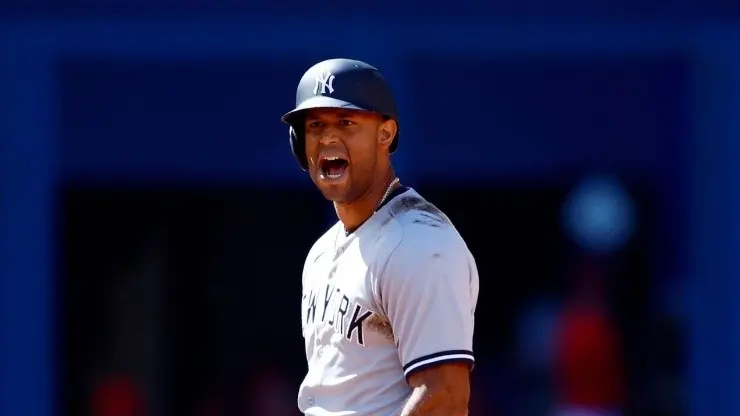- May 12, 2023
- by Shalini Murmu
- Mental Health
In a society where mental health has become a widespread topic, Aaron Hicks, an eminent baseball player, has taken a bold step in throwing light on his struggles with mental health and the added challenges of being black in America. In a recent interview, Hicks shared his experiences, openness, and vulnerability on the subject.
Aaron Hicks is a center fielder for the New York Yankees and has been playing professional baseball since 2008. Despite his on-field success, Hicks has dealt with anxiety and depression, which he attributes in part to the discrimination and systemic racism that he has faced as a black man in America.
Mental health is often an overlooked subject in the world of sports. Athletes are usually expected to be mentally tough and resilient, but the reality is that they face the same challenges and struggles that anybody else does. Aaron Hicks understands this all too well. In a recent interview with The Players’ Tribune, he described his experiences with anxiety and depression, and how being black in America has added an extra layer of complexity to his mental health journey.
Hicks talked about his experiences growing up in Long Beach, California, where he was one of only a few black kids in his neighborhood. He highlighted the pressure he felt to fit into certain stereotypes and how it damaged his sense of self-worth. He also shared how he fought with anxiety and depression throughout his career, often feeling like he was carrying the weight of an entire community on his shoulders.
Hicks’ mental health concerns hit him hard in 2016 when he was traded from the Minnesota Twins to the Yankees. He had a tough time adjusting to the new environment and the pressure of playing in New York. Hicks began to experience anxiety and depression, which he initially tried to ignore.
He also mentioned that recent events, such as the killing of George Floyd and Breonna Taylor, have severely impacted his mental health. Hicks stated that he worries about both his personal safety and the safety of his loved ones. He also shared how he constantly feels like he has to be on guard and aware of his surroundings at all times, which is mentally exhausting.
To get mental health assistance
Hicks’ story may not be unique. There have been numerous such cases where black men and women speak out loud about their complexities in society. Many black Americans have shared similar experiences, where incidents like these have led to increased rates of anxiety and depression. The constant exposure to racism, discrimination, and violence can have serious repercussions on mental health.
The non-stop pressure to succeed, the fear of not measuring up, and the stress of navigating a world that is often hostile to their very existence can take a toll on mental health. And yet, it is a story that is rarely told in the sports world.
But Hicks’ candid interview is a step in the right direction. It shines a light on the struggles faced by black athletes both on and off the field. It also underscores the importance of mental health and the need for more resources and support for athletes who are going through the same in silence.
In addition to speaking out about his experiences, Hicks also actively promotes mental health awareness. He has worked with organizations such as the National Alliance on Mental Illness (NAMI) to spread mental health education and support. As a professional athlete, Hicks also utilizes his platform to encourage people to seek support and assistance for their own mental health issues.
Hicks’ intent to share his story is not only brave but also essential in eradicating the stigma surrounding mental health and race. By sharing his experiences, Hicks is helping to create a more inclusive and understanding society that prioritizes mental health and wellness for all.
In a nutshell, Aaron Hicks’ story is one that deserves to be heard. His honesty and vulnerability are a testament to his character and his commitment to breaking down barriers and creating a more equitable world. By sharing his story, he has opened up a much-needed conversation about mental health and race in sports. Let’s take mental health seriously regardless of race or background, that can help people thrive and succeed.
Get In Touch With Us
Coping with mental strain can be tough, but NABHS is here to help.
Our resources offer valuable information on mental health conditions, the best ways to manage them, and expert guidance to help you find some relief.
















